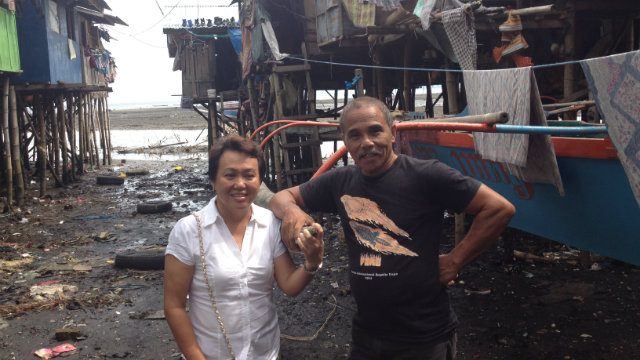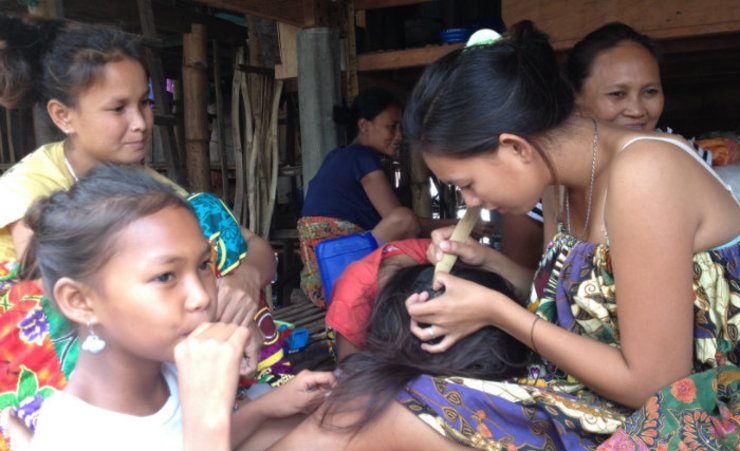SUMMARY
This is AI generated summarization, which may have errors. For context, always refer to the full article.

MANILA, Philippines – “Is that all there is to it?” asks Pastor Felicisimo “Jun” Morales, 59, to himself.
An old Badjao beggar named Johari that he met in 1990 changed his life. Pastor Jun said this was his first reaction – pity, which led his family to give him food, clothes and basic things he needed.
But another question popped on his head with nagging frequency –“That’s all?”
What he did next, along with wife Daisy, 54, was an amazing journey of courage for this often-disparaged ethnic minority.
A couple’s journey
They lived with them for 8 years in Isla Verde, located near Davao City, to help understand their culture and find ways to help them.
“We came without conditions. We just lived with them, built our own house among their shanties and tried to do what they do daily,” Daisy says with a smile of the memory.
She says: “People might have thought we were crazy giving up the comfort of our home. But back then it was not. The coastline was pristine and the sea breeze was refreshing. There was no way we can help them without fully understanding what their culture is.”
Said to be mostly from Sulu, the Badjaos are known as sea gypsies – their lives depended mostly from the sea’s fishing resources. But with the growth of commercial fishing, many of them went out of work and resorted to peddling and begging in the city’s streets. There are over 500 of them in this area alone.
Day-to-day challenges
Daisy recalled that with the epidemic of head lice going around, she got busy helping the women remove them from children’s unkempt hair and learned to use an improvised comb for sweeping the parasites.

“We lived, ate, shared stories and shown our sincerity to be with them. Over time, we have won their trust and respect, which are the most important of all,” Pastor Jun adds.
Food was always a challenge in the community. The Badjaos prefer fish paired with grated cassava, and are the main staple. Rice is hardly affordable.
Pastor Jun and Daisy set-up free clinics with the help of friends, and assisted the families in sending their children to a nearby public school.
“Helping them intermingle with the bigger community was a challenge. Most of the time they were avoided and considered different,” Daisy recalls.
Family’s journey
Such was their dedication that they raised their daughter Kezia in Isla Verde, who blended naturally with the Badjao children and grew up to love them like she is one of them.
Last year, this budding ballet dancer staged a fundraiser for the Badjao community to raise funds for a preschool. Over a hundred children are waiting for this to happen.
In a span of 8 years, the couple helped the people set-up the Badjao Association of Matina, now headed by its chairman Ruben Ladyawan, 27. From Isla Verde, the group moved to nearby area they called Canaan, so named because for them it is a promised land.
While many started giving aid to the community, Pastor Jun empowered the association to see through that it does not come with strings attached, especially from politicians, or civic groups who help but unintentionally encourage aid dependence.
“It is best that they are able to discern the purpose of that support. It is more sustainable for them to be taught how to help themselves rather than wait for the help of others”, Pastor Jun emphasizes.
Hope for the Badjaos
Pastor Jun and Daisy eventually decided it was time to leave. “We have supported them and we challenged them to stand up on their own. I have no doubt they can,” Pastor Jun said.
He is proud that Ruben is a promising leader and is passionate to lead the change for his people. A lot have changed since they left, challenges and issues faced by the community became more complex – including the city’s garbage that gets swept in by the waves.
“There are many. They are proud that no matter how poor they are, they learned how to give and help the Bagobos who sought refuge with them. During the fire that razed most of the houses last May, they got united in helping one another through the crisis,” said the couple.
The couple continue to visit the community regularly, They have served as mentors and advisers to the association leaders.
There’s a long way to go for the Badjaos – who until now are often are shunned in many public areas and deprived of rides in local transports because of their smell – but they are nonetheless hopeful.
Ruben’s dream of setting up a small school to help instill the value of education for their children is echoed with amazing passion by Pastor Jun and Daisy. “If they start school at a young age, there is better chance for them for a brighter future,” Ruben says.
The school, for now, is composed of a floor and concrete posts. When Ruben was asked what his dream is for his community, he looks longingly at the makeshift construction before him and says, “For us to build this school. It will mean a lot to our children.” – Rappler.com
If you want to contact Ruben and help build the school and school supplies, you may email Daisy Morales at daisyhmorales@yahoo.com.
Cecile Laguardia is Communications Manager of World Vision‘s Haiyan Emergency Response shuttling between Cebu, Ormoc, and Tacloban. You can also visit her blog here.
Add a comment
How does this make you feel?
There are no comments yet. Add your comment to start the conversation.